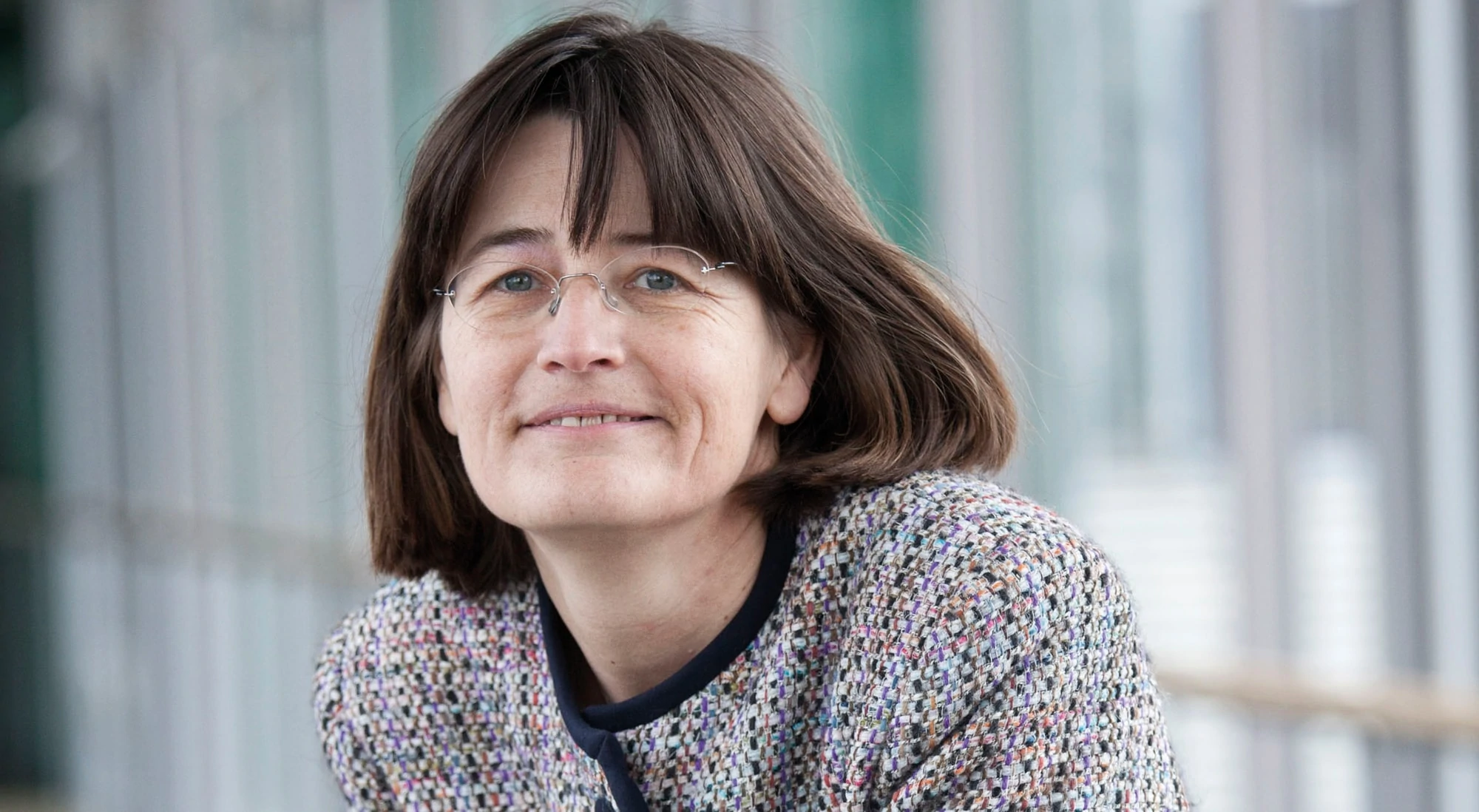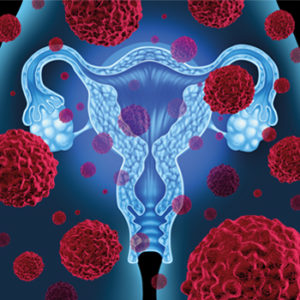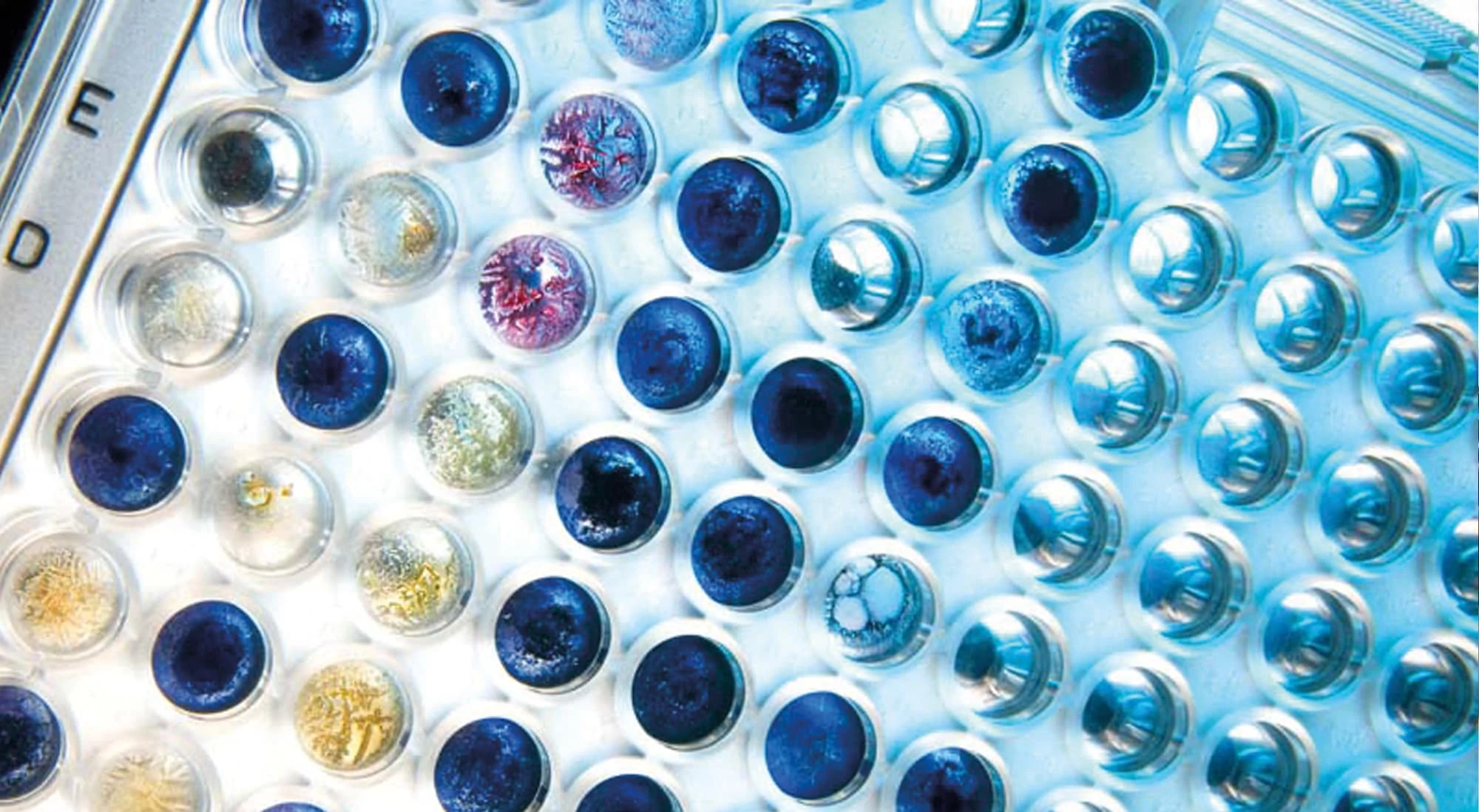Metastases have their own tumor biology compared to the primary tumor
SpheroTec GmbH has shown in a new study that metastases differ from one another and from the primary tumor in their response to therapy. This result will influence future treatment strategies
March 2018
Receiving a diagnosis of cancer is a devastating sentence for every person. After the first shock one asks: which therapy is right for me? Using its innovative diagnostic procedure, the SpheroTest®, the IZB start-up SperoTec can test all available medications in order to find the most effective therapy for an individual cancer patient. In a new study, the Martinsried-based biotech company has shown that compared to their primary tumor, metastases often have their own biology. The same applies to their response to therapy. This means that for any tumor newly diagnosed during the progression of a cancer disease, the treatment drug must be tested again. Susanne Simon interviewed Dr. Barbara Mayer for IZB in dialog.

© SpheroTec GmbH
Dr. Barbara Mayer, CSO and co-founder of SpheroTec shows a high level of personal commitment to her patients.
In dialog: What treatment options are available to tumor patients today?
DR. Mayer: CFor a long time the only option was chemotherapy. However, these drugs not only affect the tumor cells, but also all cells in the body, and therefore lead to the dreaded side effects. Today, so-called targeted substances are also available, and these should only attack the tumor cells if possible. These include monoclonal antibodies and low molecular weight inhibitors, which for example specifically block the growth of tumor cells or starve the tumor. The latest treatment option is immunotherapy, which activates the patient’s immune system against the tumor. Especially with innovative therapy options, there are new approval records every year. As a result, a growing arsenal of treatment options is available for cancer treatment.
In dialog: How does SpheroTec fit in? What are you testing for the patients?
DR. Mayer: For each type of tumor, there is a therapeutic guideline, and due to the increasing number of approvals, this recommends more and more active agents for treatment. These recommendations are based on clinical trial results from large, strictly-defined patient populations. However, the response to a particular drug is not the same for every tumor and depends largely on the individual tumor characteristics. In contrast, for those patients who repeatedly suffer from tumor progression, there are often no therapy recommendations left in the guideline. SpheroTec GmbH therefore developed a diagnostic procedure, the SpheroTest®, to carry out comparative analysis of all medications relevant to the individual cancer patient based on a tumor sample. This enables one to identify the most effective cancer therapy for the individual patient before the start of treatment. To perform the test, a biopsy tumor sample is required. This sample is used to produce micro-tumors that are very similar to the individual patient’s tumor in both tumor biology and response to therapy. These miniature tumors are treated in the cell culture dish; the test result is available within a week. All solid cancers can be tested. The 3D technology is not applicable for blood cancer, so here we test with a 2D procedure. The SpheroTest® is the only cell-based test in Germany that has been clinically validated.

© SpheroTec GmbH
This study is meant to show that not only cancer patients but also the health insurance companies have an advantage cutting costs.
In dialog: How many medications can you test?
DR. Mayer: In principle, the number of drugs depends on the size and quality of the tumor sample that is provided for the test. Based on four to five tumor biopsies, up to 10 drugs can be tested. If we have approximately 200 mg of tumor tissue (approximately half a sugar cube) obtained from an operation, we can test up to 50 treatment options. The decision about which substances should be analyzed in SpheroTest® is usually made by the patient’s therapist.
In dialog: You have recently completed a new study on tumor heterogeneity. What is behind this?
DR. Mayer: In the SpheroNEO study, we demonstrated that SpheroTest® is able to identify the most effective individual therapy for breast cancer in the neoadjuvant setting in over 90 percent of patients. Following this success, a study on tumor heterogeneity in ovarian cancer was conducted. In 90 percent of the patients, an advanced tumor stage was already present at the time of initial diagnosis. This means that the tumor is no longer limited to the ovaries, but is found everywhere in the abdomen. We demonstrated that the different tumor localizations show a different therapeutic response due to a different tumor biology.
In dialog: You have to deal daily with terminally ill people. How do you manage to cope with this enormous burden?
DR. Mayer: The diagnosis “cancer” completely upends the lives of patients and their loved ones. From one minute to the next the perspective changes. Patients, who contact SpheroTec every day, have many questions on their minds: “Which medications work specifically for me? Can the cancer continue to grow despite chemotherapy? What side effects should I expect? What else can I do to help?” Listening to people and discussing alternatives is something very valuable that one can give them along the way.

© SpheroTec GmbH
Microtumor plate: Using a tumor sample to identify the most effective drug
In dialog: What are your next goals?
DR. Mayer: We are currently preparing a major clinical intervention study in metastatic colorectal cancer with over 600 patients. This study will provide a cost-benefit analysis to show that not only the cancer patient benefits from the SpheroTest®, but that the health insurance companies also profit from SpheroTest®-based therapy management. It means avoiding carrying out multiple cancer treatments, which can cost up to 100,000 euros in a single application. The goal is that not only private health insurance, but also statutory health insurance, could cover the test costs of 2,000 to 3,000 euros without the often necessary individual case decisions of today.We have learned from many conversations that patients often resort to the use of natural products in the course of cancer therapy. These products can have a positive, but also a negative effect on the success of cancer treatment, such as inhibiting the absorption of the drug. Therefore, our goal is to include complementary medicine in our analysis.
In dialog: Did the location benefit your company at the IZB?
DR. Mayer: There is no better location for us. The network and the opportunity to cooperate with the Grosshadern Clinic, BioM and the other companies at the IZB are a huge advantage for us. Crucially, in emergency situations we always had the full support and flexibility of Dr. Zobel, the Managing Director of the IZB, so that we were able to adapt our laboratory and office space to the growth of the company.



